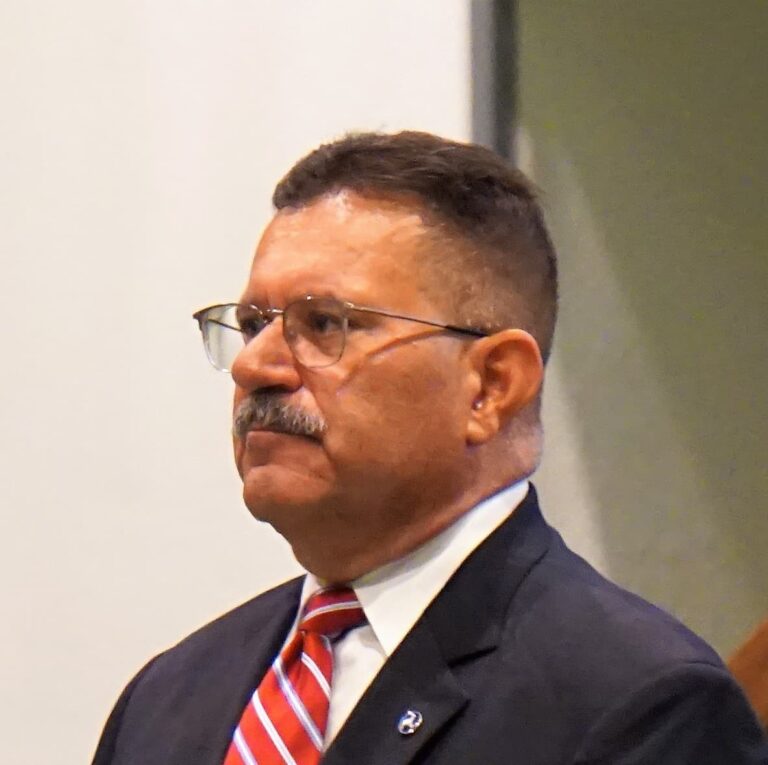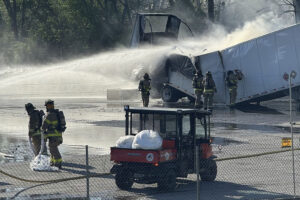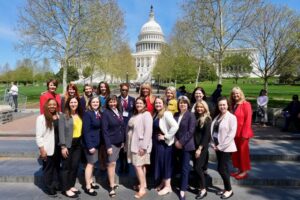While speaking at the American Trucking Associations’ (ATA’s) annual Management Conference and Exhibition in San Diego Saturday, Federal Motor Carrier Safety Administration (FMCSA) Administrator Raymond Martinez announced that FMCSA, along with ATA, the American Transportation Research Institute, the Technology & Maintenance Council and others are embarking on a two-year collaborative project to promote and accelerate the adoption of advanced driver assistance systems (ADAS).
The project, which will be funded through the Department of Transportation’s ITS Joint Program Office, will be a directed effort among the partnering groups to highlight, through industry partnerships, outreach, and education, the benefits of ADAS technologies such as automatic emergency braking and lane departure warnings.
“Working with ATA and others, we will develop outreach and education materials that will outline ADAS’ potential to reduce fatalities and prevent injuries and crashes and share it with fleets, owner-operators, and other drivers who aren’t yet aware of ADAS’ potential benefits,” Martinez said.
Perhaps just as important, Martinez said the project will give the agency the chance to examine the prevalence and adoption rates for these technologies within the industry, and they will be able to measure both the impact of the outreach efforts on industry adoption of the technology’s safety benefits out on the road.
“I’m very excited about what we can learn through the ADAS project,” Martinez said. “Thanks to all our partners for their enthusiasm and great ideas as we begin this important work. This is a concrete example of how active collaboration can help the industry remain strong and growing.”
The announcement of the ADAS project was the highlight of Martinez’ speech before the MCE attendees. He led up to it by highlighting several other FMCSA-related topics and holding them up as examples of the benefits of cooperation between the industry and the agency in the pursuit of safety.
Martinez reminded the audience that time was running out for public comment on arguably the hottest topic in trucking, FMCSA’s proposed changes to the Hours of Service rules, including modifications to the short-haul exemption and the adverse weather exemption, changes to off-duty breaks and more flexibility in the sleeper berth exemption.
He also reminded the audience to get a head start by registering for the national Drug and Alcohol Clearinghouse. The congressionally mandated database, set to go live January 6, that will allow FMCSA, CMV employers, state driver licensing agencies and law enforcement officials to identify CDL drivers who have violated federal drug and alcohol testing program requirements, and will be a required pre-employment step for CDL-required driving jobs.
FMCSA opened registration for the clearinghouse October 1. “We want to see that everyone who’ll be using the clearinghouse are registered as efficiently as possible,” Martinez said. “We strongly encourage all CMV stakeholders to get registered now.”
Martinez also updated those who may not have heard that FMCSA has concluded after a two-year study that ended this summer to extend a program designed to determine preventability in certain types of crashes.
“On August 5, 2019, FMCSA published a Federal Register notice proposing a new long-term determination program with additional crash types and other program enhancements,” Martinez said. We proposed to remove crashes with “not preventable” determinations from the SMS Crash Indicator measure and percentile and note these determinations in the pre-employment screening program.”
Martinez also mentioned another upcoming deadline, the final step to full implementation of ELDs in over-the-road trucking. As of December 16, 2019, trucks equipped with AOBRDs purchased prior to the original ELD deadline, December 18, 2017, will have to have replaced them with ELDs.
“We recognize that ELDs remain a top issue for the industry, and that this transition period — triggered by the congressionally-mandated use of ELDs — may have been challenging” Martinez said. “It’s a big shift, but we remain committed to working with industry, law enforcement, and the ELD vendor community to make this transition work.”
As proof that the effort has been worth it, Martinez pointed out that HOS violations dropped 52% in the past year.
But the real bottom line is safety, Martinez said, as he brought home the theme central to all of these programs, and that making these programs work takes a team effort.
“Collaboration is crucial,” he said. “None of us can do this work alone. We all own safety: FMCSA, industry, states, drivers, law enforcement, and the motoring public. We must all be all in — every one of us, every single day.”
The Trucker News Staff produces engaging content for not only TheTrucker.com, but also The Trucker Newspaper, which has been serving the trucking industry for more than 30 years. With a focus on drivers, the Trucker News Staff aims to provide relevant, objective content pertaining to the trucking segment of the transportation industry. The Trucker News Staff is based in Little Rock, Arkansas.








